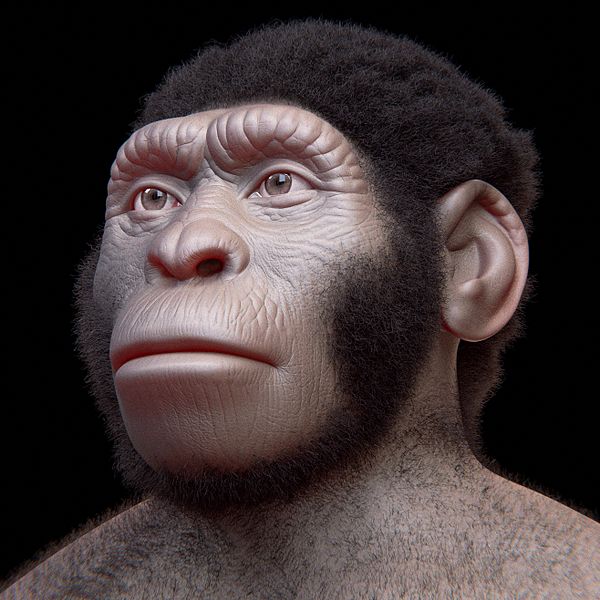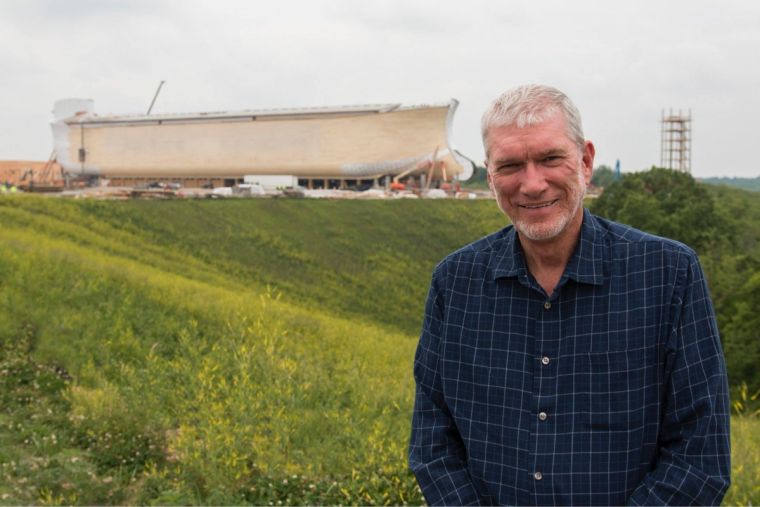God, apes, and confused creationists: Why Christians can't make science the enemy

The discovery of mysterious fossilised bone fragments has divided the conservative Christian community, with Young Earth Creationists torn on what to say. Many are determined to defend the Bible, but are they missing the point?
Confusion about creation can end not just in bad science, but poor theology too.
In 2013 scientists made a fascinating discovery: they found bone fragments in a cave in South Africa, but the bones seemed to belong to a hominid species then unknown, but with striking similarities to present-day human beings (Homo sapiens). The species was given a name: Homo naledi, and speculation soon began about what to make of them.
However, the discovery prompted a particular problem for Young Earth Creationists (YECs), who reject an evolutionary account of creation and hold the earth to be between six and 10 thousand years old. The bones imply a species that resembles both apes and modern humans, and a thus a common ancestry between the two.
YECs deny such a possibility, and are keen to delineate the differences between humans (descendants of Adam and Eve) and apes. An incisive analysis of the bone discoveries, and YEC reactions, can be found at Naturalis Historia.
The author there created a chart which helpfully portrays contrasting creation reactions to Homo naledi.
Creationist Ken Ham's response was a characteristic of a committed creationist. He said: 'This discovery changes nothing about our understanding of human history. You see, the only eyewitness account of human origins is the one provided by God our Creator in the Bible's book of Genesis.
'No scientist witnessed the origin of man, and evolutionary scientists only believe there were intermediate evolutionary links between an ape-like ancestor and man because they have disregarded God's Word and substituted their own fallible opinions in its place.'
The response is simple enough: the only account of origins you can trust is the Bible, an accurate, scientific account of history. Any other discoveries must be charted within that framework. For Ham the Homo naledi bones simply belong to apes.

However, other creationists weighed in with more nuance. Some, such as the Institute of Creation Research (ICR), suggested that the bones had been confused and formed a 'made-up species'.
Naturalis Historia criticised such an approach: 'when ICR suggests that the bones are a mixture of human and ape bones, they are asking us to believe that the scientists have either purposely or incompetently misidentified bones from two sources and ascribed them to a single skeleton.'
Others said that the bones were in fact human, some suggesting humans with certain pathologies accounted for the abnormalities.
All dated the bones within a young earth time-frame, less than 4,350 years old in the 'post-Noahic Flood era'. In contrast, latest scientific estimates suggest the Homo naledi to be between 335,000 and 236,000 years old, although an earlier estimate dated them as far back as two million years. Either figure is a far cry from the young-earth assessment.
For those unversed in palaeontology, complex evolutionary theory and prehistoric biology (which is most of us), the meaning and relevance of obscure bone discoveries can be hard to discern.
Scientists themselves will disagree about Homo naledi, and it's quite right that different theories are considered. But YECs are playing a different game altogether, and a dangerous one at that. They – and Ken Ham is the most extreme example – can end up doing not just bad science, but bad theology too.
Ham is not just a voice in the wilderness. He, and his organisation Answers in Genesis, are an influential voice in Christian America. His line is that essentially: there's only one account of origins you need to read, and it's the book of Genesis.
For Ham, Genesis shows the earth to be young, and evolution to be a lie. Any 'science' that says otherwise is deception contrary to God's word. You can choose Scripture or science, but you can't have both.

It's a popular dichotomy that has allowed the pop-philosophy of Richard Dawkins et al to make faith the enemy of reason. It holds believers at gunpoint, demanding a fundamentalist faith. Its bold stance might draw some in, but others will simply leave the Church, reluctant to dismiss the same science that has made so much of our world.
I respect the efforts of YECs to take the Bible seriously. I also respect that many of them are accomplished scientists, though I have many questions about how exactly that works.
Genesis is a book of origins, but that doesn't make it a science textbook. A refusal to admit and appreciate the Bible's many literary genres takes Scripture doesn't take Scripture too seriously – it doesn't take it seriously enough.
Is it possible that God intended the book of Genesis not as a dry account of creation's chronology, but a vivid drama depicting human reality in all its complexity? The Bible's first book gives us a story: narrating chaos and grace, family feuds and relationships restored. We meet a mysterious God both transcendent over and invested in his creation.
As one writer put it, the point of Genesis is not just that it happened but that it happens.
If modern science is fundamentally built on a widespread conspiracy against God's truth, then perhaps the creationists are doing clever work – but I have my doubts.
If knowledge is a gift of God, whom we're commanded to love with all our minds, then why fear it? The psalmist says that 'the heavens declare the glory of God': good study (science) of the natural world should bring us to God, not tear us away from him. Just yesterday it was revealed that Homo sapiens are actually 100,000 years older than previously thought. It's an exciting discovery, but not one Christians should feel threatened by. Whether its science or theology, all truth is God's truth. That doesn't mean we refuse to challenge or think critically, but it does mean we refuse to live in fear.
As thoughtful groups like BioLogos show, you can have both evolution and a God who is holy, powerful and present to the world.
It's a classical, orthodox notion that God speaks through both creation and his written word. Why make them enemies?
You can follow @JosephHatropp on Twitter











